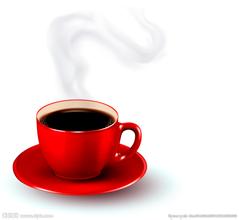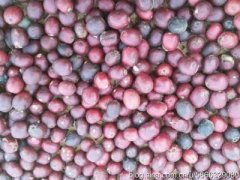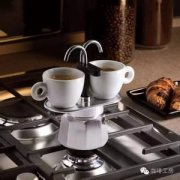Coffee common sense: the origin and market of Blue Mountain Coffee

For a long time, Blue Mountain Coffee is like a god in China, and almost every coffee shop must claim to have Blue Mountain Coffee. It's just that not many people really use blue mountain beans. According to Jamaica Coffee Bureau export statistics as of 2004, 85% of the limited Blue Mountain coffee bean quotas were exported to Japan, 5% to the United States, 5% to Europe and 5% to other countries. However, China accounts for 15% of the global consumption and distribution of authentic Jamaican Blue Mountain coffee, according to the International Coffee Association. This is because some shares of Blue Mountain coffee in Japan, Australia and Europe are exported to China through direct branches.
A real Blue Mountain Coffee is in the triple digits, but as an advertisement said, not all milk can be called × × ×, and not all Blue Mountain beans can produce the flavor that Blue Mountain Coffee should have. Because the real flavor of Blue Mountain Coffee is the combination of beans and processing technology, rather than simply imported Blue Mountain beans.
Market
The difference between the same blue mountain raw beans and cooked beans is ten times.
Blue mountain beans are bigger than ordinary coffee beans.
Raw beans are not easy to supervise.
However, some of the blue mountain coffee beans entering China are raw beans, that is, unprocessed coffee beans, while others are ripe beans processed by four local legal processing plants in the Blue Mountains of Jamaica. However, according to Mr. Liang, president of the Guangzhou Coffee Association, the price difference between raw and cooked beans in Lanshan Coffee is nearly ten times. Because the blue mountain coffee beans in addition to pay attention to the origin of origin, but also pay great attention to its processing methods. If you import raw beans, on the one hand, you can not enjoy the perfect flavor of Blue Mountain Coffee, on the other hand, it is easy to be mixed with other coffee beans by imported traders, and the intermediate link can not be supervised.
Analysis
Together in the Blue Mountains
The height is not high enough to be called "Blue Mountain".
Blue Mountain Coffee must be certified
In Jamaica, exported Blue Mountain coffee beans must be inspected and certified by the coffee shop before they can be allowed to be exported. At the same time, they must use the Blue Mountain coffee trademark registered by the coffee bureau in more than 20 countries around the world to be truly authentic Jamaican blue mountain coffee beans. Among them, the Jamaica Coffee Bureau stipulates that Blue Mountain Coffee must be grown in the legal Blue Mountain Coffee area before it can be called real Jamaican Blue Mountain Coffee. It is authorized to use the coffee bureau registered trademark: Blue Mountain Coffee.
Brewed Blue Mountain Coffee products
Below 3000 feet is "Alpine Coffee."
The legendary Blue Mountain is on the eastern side of the island of Jamaica, with a total altitude of 7402 feet. Only at an altitude of 3000ft to 5000ft can a balanced and slightly sour Blue Mountain Coffee be grown, and only in the Blue Mountain area at this altitude can the grown Blue Mountain Coffee be considered to be 100% Jamaica Blue Mountain Coffee. The coffee grown below 3000 feet above sea level is alpine coffee, which is authorized to use High Mountain Coffee. The total amount of alpine coffee grown is five times that of Blue Mountain coffee, and most private estates grow alpine coffee for export and domestic sale as a tourism specialty. As for the blue mountain area above 5000 feet above sea level, the jungle is dense and is not suitable for any crop.
Brewing has certain requirements on water temperature.
Taste evaluation
Blue Mountain also needs to talk about its origin.
Just like red wine to talk about the famous village, Blue Mountain Coffee is also particular about the origin of the manor, the processing level of the famous village is much better than other processing plants, known as the legal manor.
What is a statutory manor? In the Jamaican Coffee Industry Regulation, the Jamaican Coffee Authority authorizes several large estates to centrally process coffee fruits, export Blue Mountain coffee beans and use the Blue Mountain Coffee trademark to safeguard the reputation and quality of Blue Mountain Coffee.
According to the Jamaican coffee regulations, high-quality coffee fruits must be peeled by finger pressure, and more than 2% of green or immature coffee fruits are not allowed to be selected and stored; coffee fruits are not allowed to be stored in metal or plastic containers, such as plastic film, fertilizer bags or sealed containers, as this accelerates the fermentation of coffee fruits; avoid storing coffee fruits in water, as water accelerates the splitting of coffee fruits At the same time, the coffee fruit should go through the water floating procedure in the manor, and whether it meets the water floating requirements should be re-tested before storage to ensure that the process is completed in the manor; when conducting the water flotation test, follow the principle of random sampling, extracted from a bag or box of coffee fruits; then qualified coffee fruits need to be stored for 24 hours. In the process of peeling and washing coffee fruit, it takes 50 gallons of water for every 1.5 cubic feet of coffee fruit, and so on. As for baking, it is more exquisite, medium baking, but the baking technology is confidential.
Important Notice :
前街咖啡 FrontStreet Coffee has moved to new addredd:
FrontStreet Coffee Address: 315,Donghua East Road,GuangZhou
Tel:020 38364473
- Prev

Description of Flavor of Fine Coffee beans in Tanzania A brief introduction to the treatment of taste grinding degree in the producing area
Moderate roasting will give off sweetness and light acidity, deep roasting will produce soft bitterness, suitable for blending coffee types: medium concentration coffee description: refreshing acidity and medium mellow complement blackcurrant and mandarin orange flavors processing method: washing method with flavors: blackcurrant, orange and lemon similar coffee: Kenya coffee from Tanzania
- Next

Basic knowledge of coffee: introduction to charcoal roasted super blue mountain coffee
Jamaica Prime Washed, Jamaica's main coffee producing area, St. Angel (St.Andrew), which is more than 6000 feet above sea level in Jamaica, produces about four to six times more than No.1, and the price is also on the high side; the same Blue Mountain coffee cannot be directly named after No.1, but there are still many international professional buyers who specialize in buying this series of products, some of which are more famous.
Related
- Detailed explanation of Jadeite planting Land in Panamanian Jadeite Manor introduction to the grading system of Jadeite competitive bidding, Red bid, Green bid and Rose Summer
- Story of Coffee planting in Brenka region of Costa Rica Stonehenge Manor anaerobic heavy honey treatment of flavor mouth
- What's on the barrel of Blue Mountain Coffee beans?
- Can American coffee also pull flowers? How to use hot American style to pull out a good-looking pattern?
- Can you make a cold extract with coffee beans? What is the right proportion for cold-extracted coffee formula?
- Indonesian PWN Gold Mandrine Coffee Origin Features Flavor How to Chong? Mandolin coffee is American.
- A brief introduction to the flavor characteristics of Brazilian yellow bourbon coffee beans
- What is the effect of different water quality on the flavor of cold-extracted coffee? What kind of water is best for brewing coffee?
- Why do you think of Rose Summer whenever you mention Panamanian coffee?
- Introduction to the characteristics of authentic blue mountain coffee bean producing areas? What is the CIB Coffee Authority in Jamaica?

